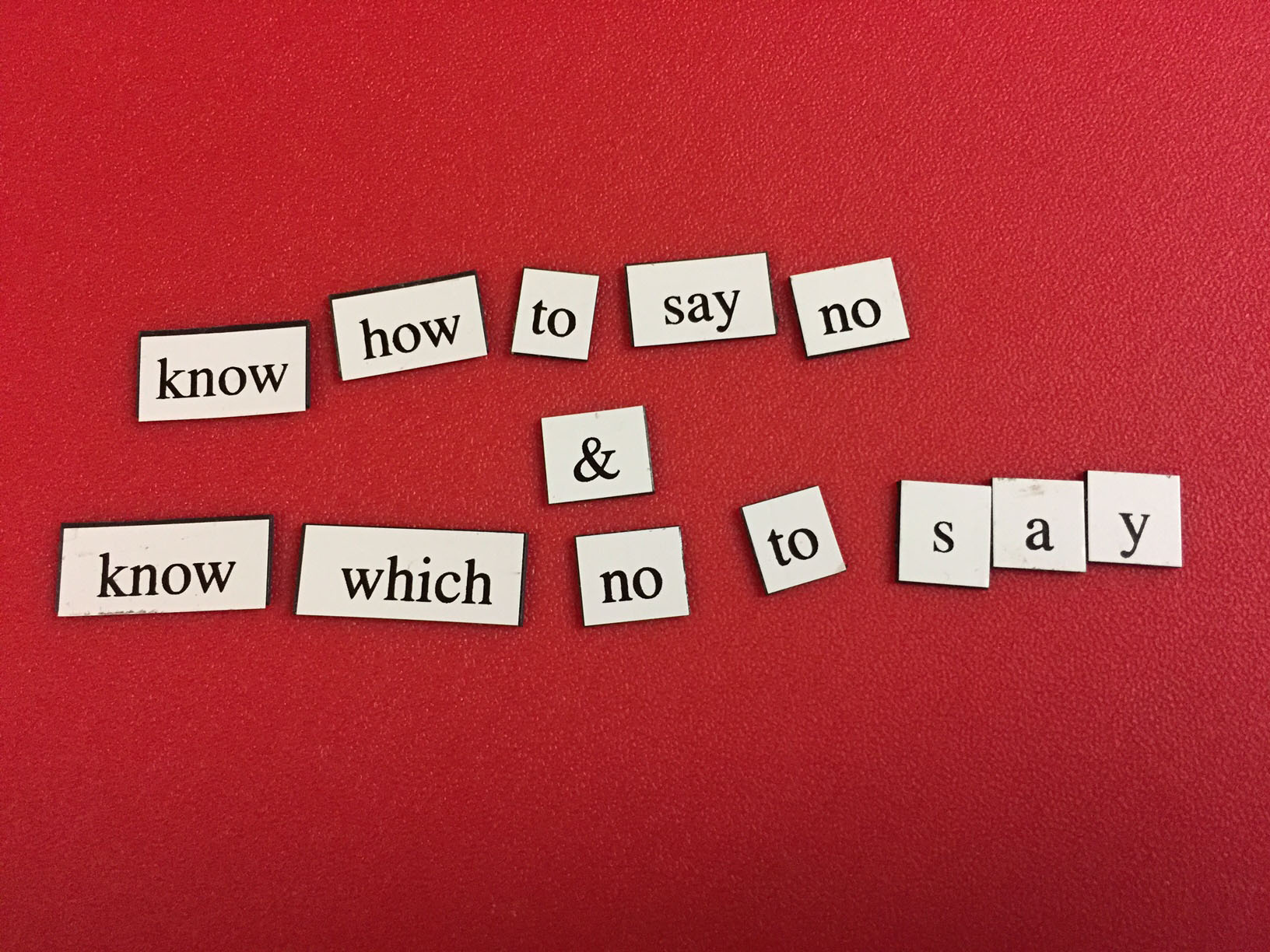 Millions of you are headed back to campus for the final weeks of the semester. During the first part of the semester you may have experienced how challenging time management and staying focused is, and will be, throughout your college careers. Through personal experience and conversations with my students, I’ve learned that mastering the skill of setting priorities and learning how to say “No,” can help you manage your time and sharpen your focus with great results. How well you deal with requests from other people for your time and effort will determine how successful you are at staying on course to graduation. This is especially true for if you’re doing well in school. Everyone wants a bit of your brilliance so you have to be careful not to burn yourself out.
Millions of you are headed back to campus for the final weeks of the semester. During the first part of the semester you may have experienced how challenging time management and staying focused is, and will be, throughout your college careers. Through personal experience and conversations with my students, I’ve learned that mastering the skill of setting priorities and learning how to say “No,” can help you manage your time and sharpen your focus with great results. How well you deal with requests from other people for your time and effort will determine how successful you are at staying on course to graduation. This is especially true for if you’re doing well in school. Everyone wants a bit of your brilliance so you have to be careful not to burn yourself out.
Jill, a student of mine who was doing well came to see me just before the end of last semester. She flopped down in a chair in front of my desk, exhausted and stressed.
“I just can’t keep up with everything. It’s just too much,” she said. “I’m taking 15 hours to stay on track to graduate in four years, it takes a lot of time to do well in all my classes. I’ve made many friends that I like to go out with a lot. Then there are extracurricular activities I’d like to be involved in. There just isn’t enough time for everything I need to do, want to do or other people want me to do. Now, I don’t know what to do. ”
I told Jill, “I understand. I’ve got more to do than time to do it as well. Each activity or person outside of your course work wants just a little bit of your time but all of those little bits add up to more time than you have to give. The first thing you must remember is that your classes comes first. That is your priority; it is what you’re in college and paying for. Your education ensures your future. Plan any other activities around that fact. During each semester, I want you to plan each week in the semester by what you need to get done in your classes; then refer to that plan before committing to anything else. You’ll see right away which weeks your study load will be lighter than others – those are times you’ll have more time to play. You’ll know in advance when you’ve got two papers due, a research project and an exam, that’s when you’ll have to say ‘no’ to any one and anything that tries to knock you off track.”
“That’s easier said than done,” Jill said “my friends can be pretty persistent, sometime they wear me down.”
“Then you’re going to have to learn how to say “no,” empathetically or emphatically.”
“What does that mean?” Jill asked.
“The empathetic no lets your friends down easy, ‘I’d love to go with you but I just can’t. I know you’re going to have a great time and I really wish I could be with you but I have to put this time in to pass this class.’ The emphatic no is just NO – you pull this out when the empathetic no doesn’t work.”
Jill laughed, “I’m going to have to use the emphatic no a lot.”
“Not necessarily,” I said. “The beauty of having your study schedule mapped for the semester the way I suggested, is that you can actually see where you can move some things around so that you can do other things, and still get everything done. That’s knowing when and how to say no.”
“I’m going to use this,” Jill said. “Thanks, Dr. Sawyer! Or should I call you, “Dr. Know.”
“Is that ‘k-n-o-w’ or ‘n-o,’” I asked.
“Both,” she said as she left my office smiling.